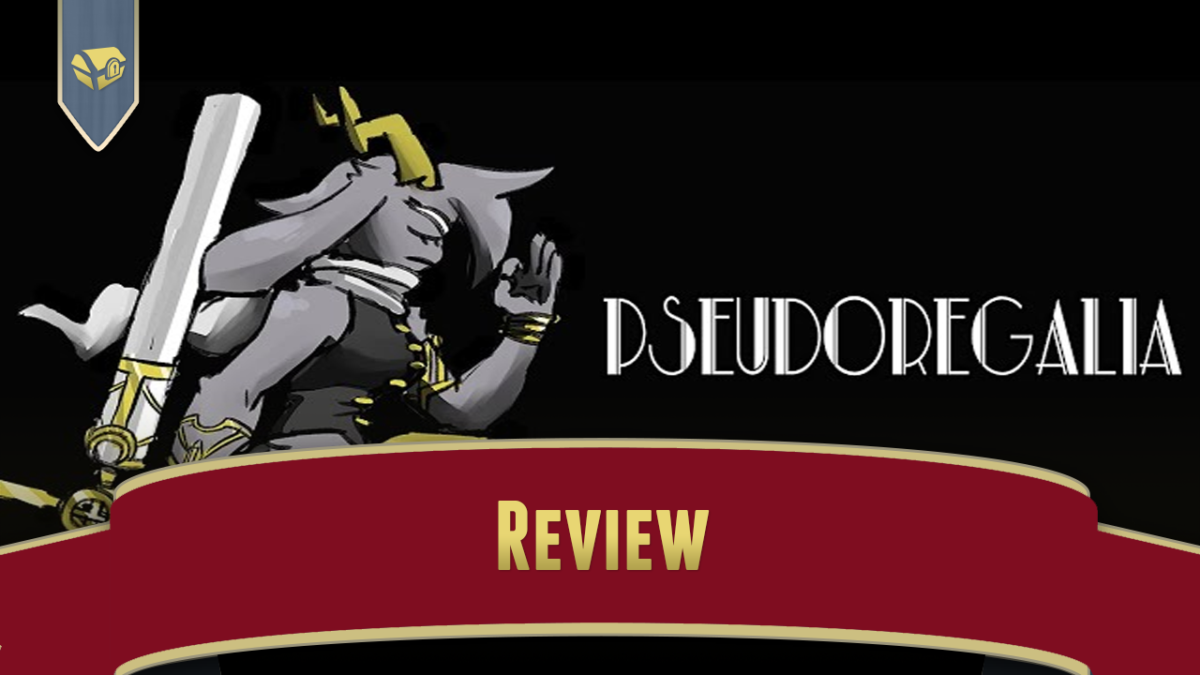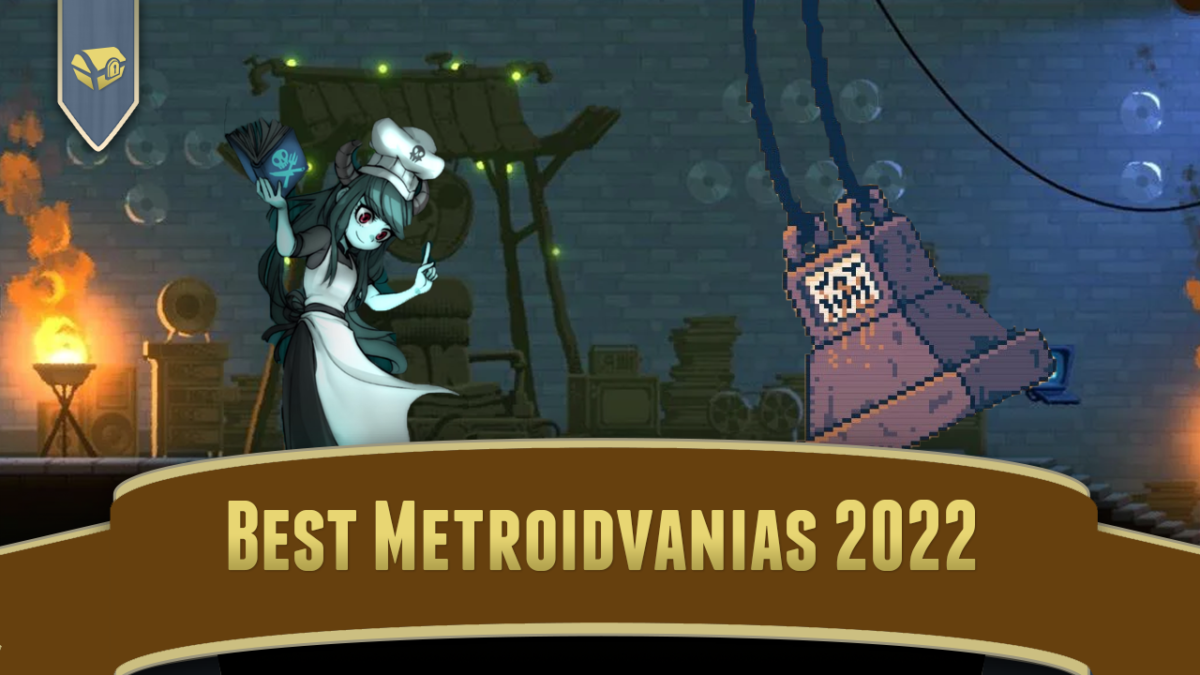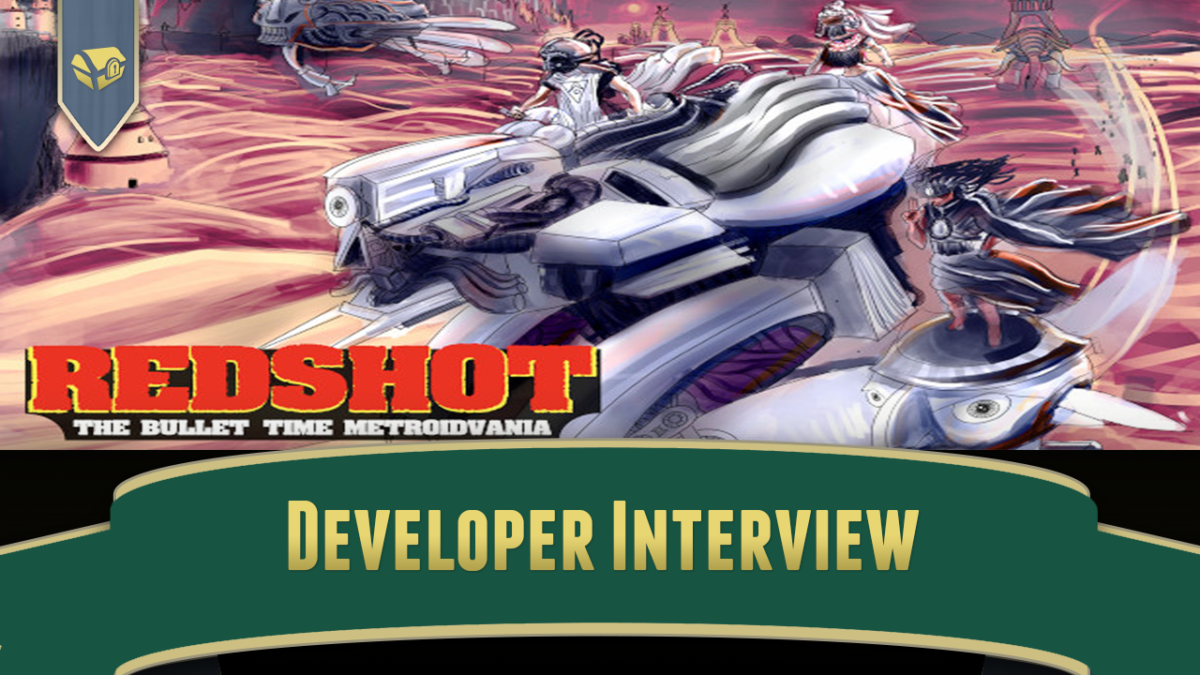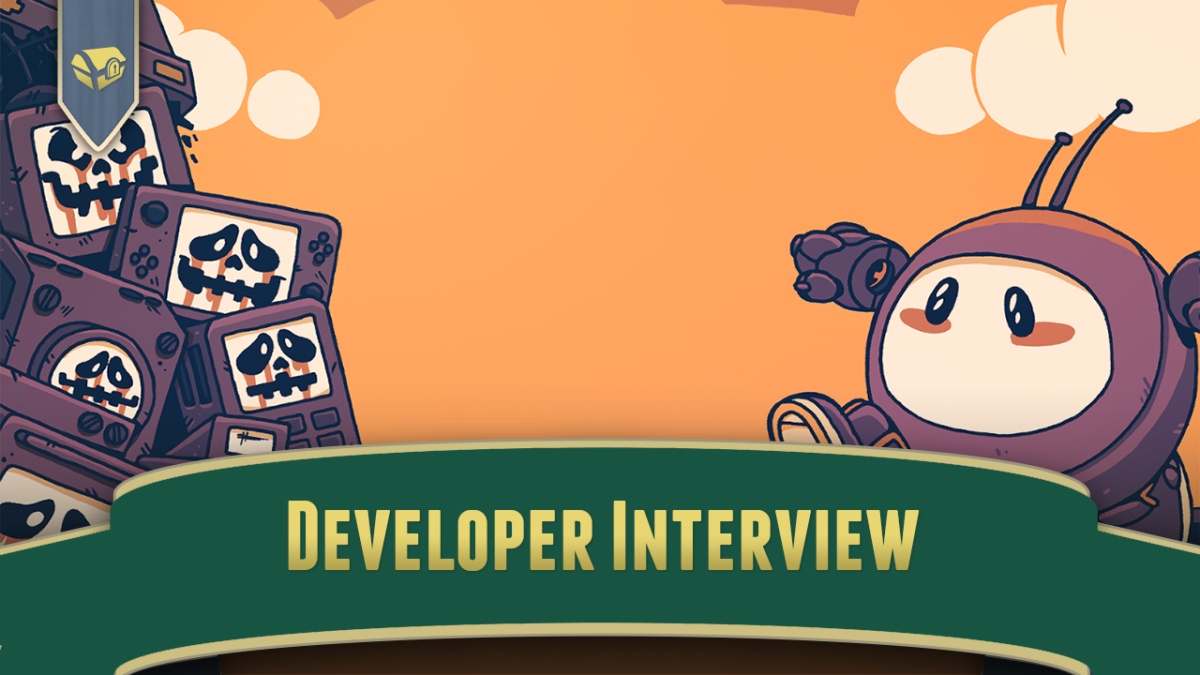Producer Koji “IGA” Igarashi and director Shutaro Iida posted a video last night (7 1/2 minutes) to their Youtube channel looking back on the game’s creation, starting from its Kickstarter announcement and their many stretch goals, and the game’s planning and development.
Tag: metroidvania
Pseudoregalia Video Review
This is a video review of the game Pseudoregalia played with a retail key.

Owner of Game Wisdom with more than a decade of experience writing and talking about game design and the industry. I’m also the author of the “Game Design Deep Dive” series and “20 Essential Games to Study”
Romancelvania
Indie Games Plus’s Joel Couture, who’s kind of a friend of the blog, reviewed this silly exploratory platformer/horror game/dating sim. They admit that they’re running a campaign to promote it, but that it doesn’t affect their review. I believe them, because the premise is way too ridiculous and charming to pass up. I can assure you that I have no connection with them! It’s on the PS Store, the Xbox Store (if that’s what it’s called, I’m fuzzy on it), the Epic Store, and Steam, which is a store but doesn’t include the word store in its name. They say It’ll be in the Switch eStore eShop later on.

You can choose to play either a male or female Dracula. I don’t see signs of a gender ambiguous version, but we are talking about a vampire here, they’re kind of notorious in popular culture for not caring a lot about what their partner’s sex or gender is. There’s 12 monsters across two genders and lots of species. Hey, it’s got Cthulhu in a dress!

Admittedly there’s lots of games that don’t live up to a great premise. The memory of the $4 I wasted on Animal Fight Club still sticks in my craw. The Steam reviews are mostly positive, with some people complaining of jank and some implementation issues, so you should know about that going in. But it’s only been out a week so far, so it’s likely to improve in the coming months. It’s up to you if you want to jump the gun now or wait to see if it gets better, but its presentation is charming already, tastefully sexy and playful without being raunchy. I can appreciate that!
Romancelvania (Indie Games Plus review – PS – Xbox – Epic – Steam)
Josh’s Favorite Games of 2022 – Best Metroidvanias
The Metroidvania category continues to be an indie staple and this year saw some very interesting ones getting released and hopefully a good sign for 2023.
#3: Haak
The first of several metroidvanias that came out after being on early access, Haak delivers a combination of combat, platforming, and exploration through a stylized destroyed world. The game starts out simple enough, but it does get quite difficult near the end. There are multiple endings, secrets, lots of collectibles, and bonus quests to find in it.
What keeps it from getting higher is that the game tended to rely a bit too much on having to find secrets and hidden stuff to stand a chance, especially at two bosses near the end that spike in difficulty. If you’re looking for a challenging metroidvania, this is a very solid example.
#2: Dungeon Munchies
Even longer on early access and finally out, Dungeon Munchies comes with a lot of variety and charm. What starts out as you coming back to life to learn to cook food from a master necromancer/chef, turns into an ever-escalating journey into this strange world with a lot of heart, soul, and food to uncover. The game takes a lot of interesting turns that no one will really expect where it all leads, and still manages to keep its heart until the very end. Using your food items as a source of customizable buff lists is a different take. What stops it from getting higher is that it did feel janky in spots, and some of the metroidvania progression felt forced.
I hope we see more from the universe as there is a lot more stories to tell and food to make.
#1: Haiku the Robot
Haiku the Robot is a solid metroidvania with inspiration heavily from Hollow Knight while still carving out its own unique take. In a world where humanity is gone and there are nothing but robots around, when a strange corruption starts spreading, it’s up to Haiku to figure out what’s going on.
This is just an all-around great take on the design — controls feel solid, upgrades substantial, and there are plenty of secrets and collectibles to find. If you’re someone who is itching for Silksong and that style of metroidvania, don’t sleep on Haiku.

Owner of Game Wisdom with more than a decade of experience writing and talking about game design and the industry. I’m also the author of the “Game Design Deep Dive” series and “20 Essential Games to Study”
Redshot Developer Interview
An interview with Brian Lynch who developed the game Redshot. We spoke about making his first metroidvania, the challenges of using bullet time and building it for speedrunning, and more.

Owner of Game Wisdom with more than a decade of experience writing and talking about game design and the industry. I’m also the author of the “Game Design Deep Dive” series and “20 Essential Games to Study”
Haiku the Robot Developer Interview
An interview with Jordon Morris who designed the metroidvania Haiku the Robot for a chat about the game and metroidvania design. We spoke about the creation of Haiku, how the environments were designed and balanced, and more about making a metroidvania.

Owner of Game Wisdom with more than a decade of experience writing and talking about game design and the industry. I’m also the author of the “Game Design Deep Dive” series and “20 Essential Games to Study”
Maze of Galious Enhanced
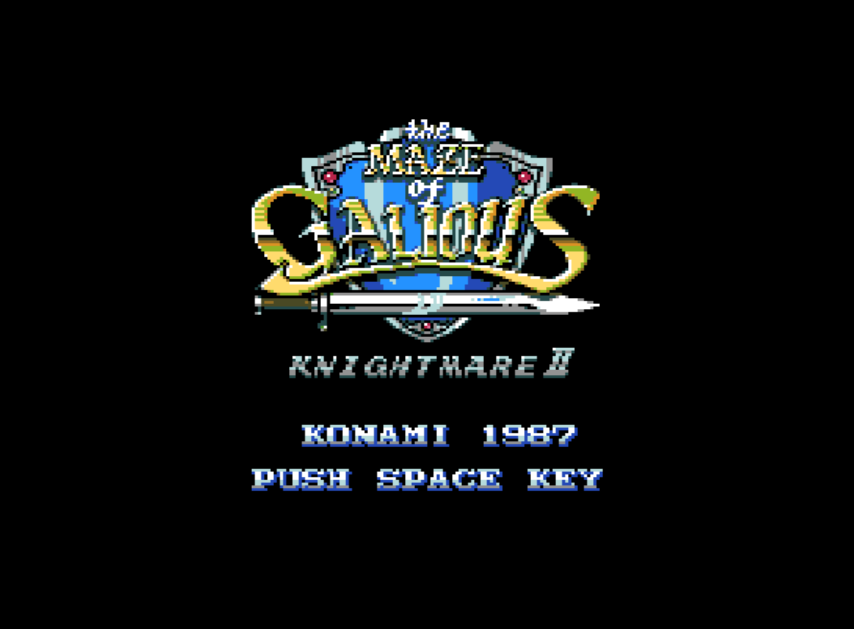
You want to know a great game that, statistically speaking, you’ve probably never played? Konami’s Maze of Galious for the MSX. It’s an early example of that genre we all now call Metroidvanias (Jeremy Parish, your royalty check is in the mail), and in Japan it was hugely inspirational. More recently, it was a direct inspiration for the La-Mulana games.
Well, more-recently-than-that, some romhackers have updated it to take advantage of the much more powerful MSX2 hardware. This results in much more detailed and colorful graphics and a number of other game improvements.
Playing it requires a rom of the original game (which you much seek out yourself), the patch file (here’s it’s GitHub site), and a patcher like Floating IPS. Or do you? Indie Retro News found a site that’s serving up the game and patch together, all ready to play!
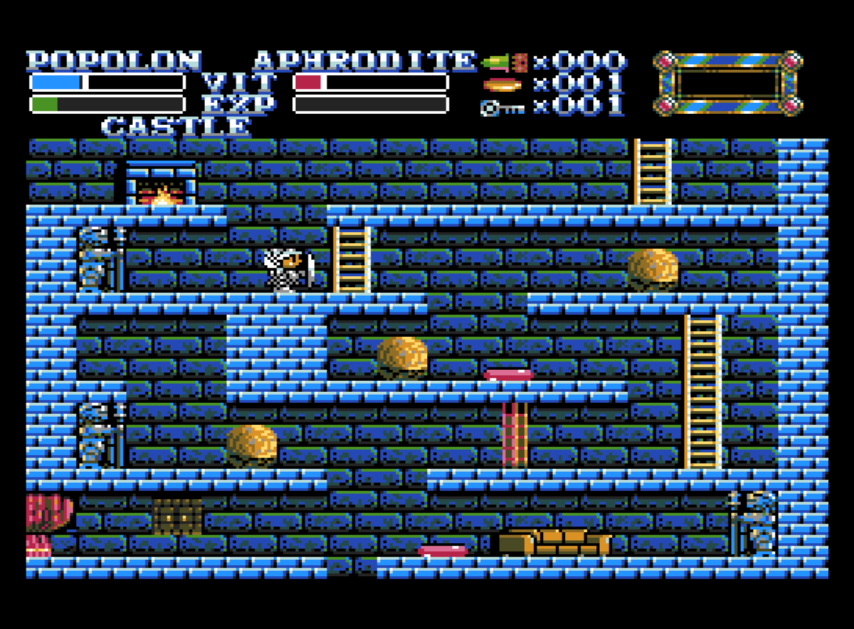
If you’re prepared to patch the rom yourself and name it correctly (it’s explained on the project’s GitHub page), it can also be played in the online MSX emulator at webmsx.org.
So, what’s playing it like? Challenging! You have two characters, Popolon and Aphrodite, who have separate health and experience meters. Filling up your experience bar doesn’t actually improve your stats at all; it just heals that character up to full. And your characters’ jumps, while not as stiff as Simon Belmont’s, are not fully controllable in mid-air.
The two characters have subtly different abilities. Popolon’s attacks do more damage, he can jump higher, and his jump height varies according to how long the button is held. He’s also the only one who can push open doors. Aphrodite’s jumps are of constant height, but she’s also the only one who can survive in water! If one character runs out of health, the other can soldier on alone, but reviving the other is a difficult process.
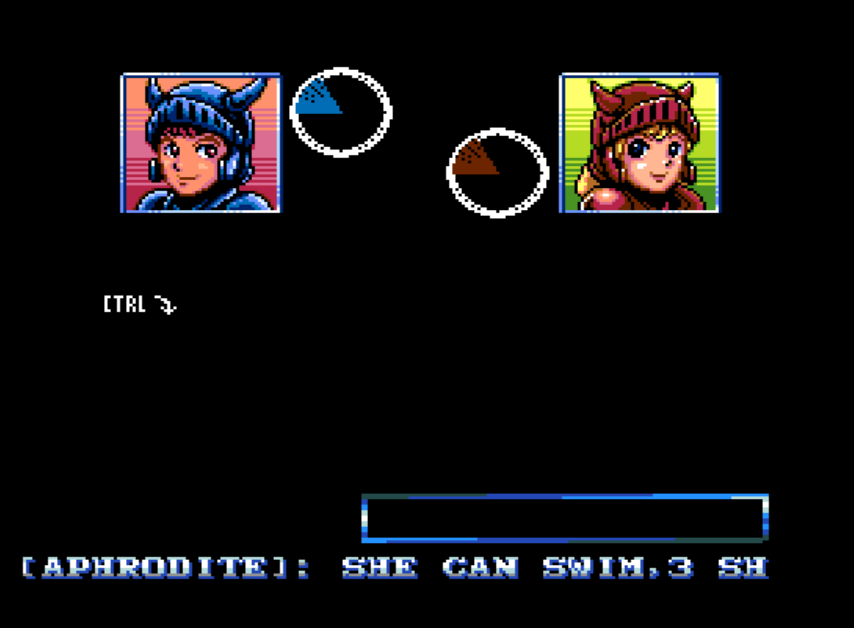
In fact, the whole game is a difficult process! This is from that thankfully-brief time in the history of video gaming where developers seemed to revel in putting in secret features and hidden passages. Beating the final boss requires you find a very well-hidden item, the Cross, which is in a very secret passage. If you no longer have months to devote to finishing a game, you’re probably going to want to find at least a good FAQ for this one.
Via Indie Retro News.
The Steam Going Rogue Sale
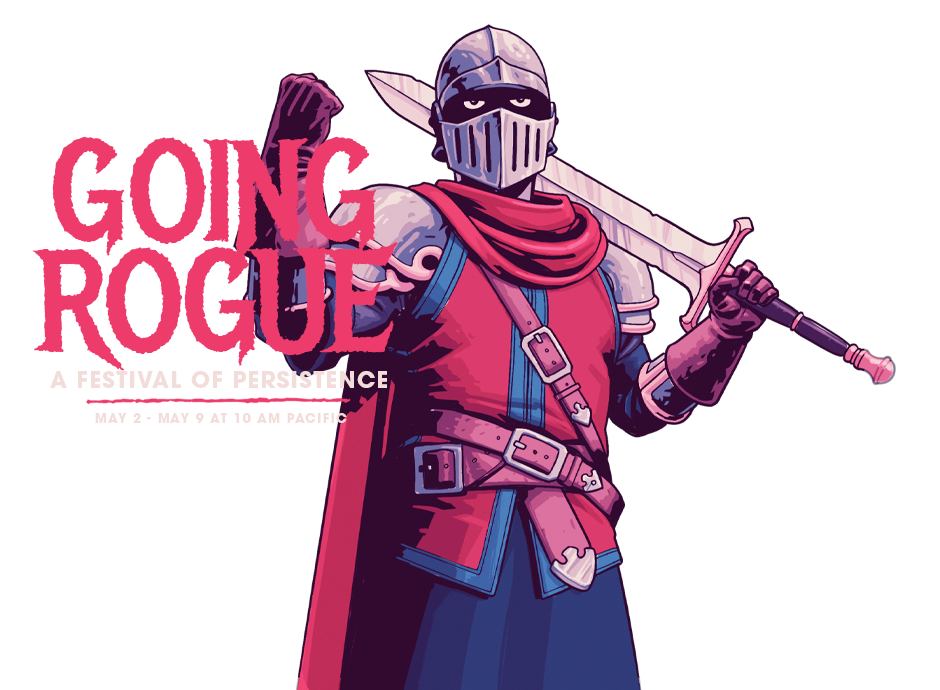
Steam is having a sale for a few days on roguelike and roguelite games, as well as “Souls-like” and “metroidvanias.” They published a page defining each of the terms, which I don’t entirely agree with, and by featuring all of them in a sale called Going Rogue they seem to be purposely conflating these terms, which annoys me a little, although there are plenty more concerning things going on in the world right now. (Especially metroidvania, which really has almost nothing to do with roguelikes.)
I give some better definitions down below, but in the meantime let’s have a look at some interesting items in their sale:
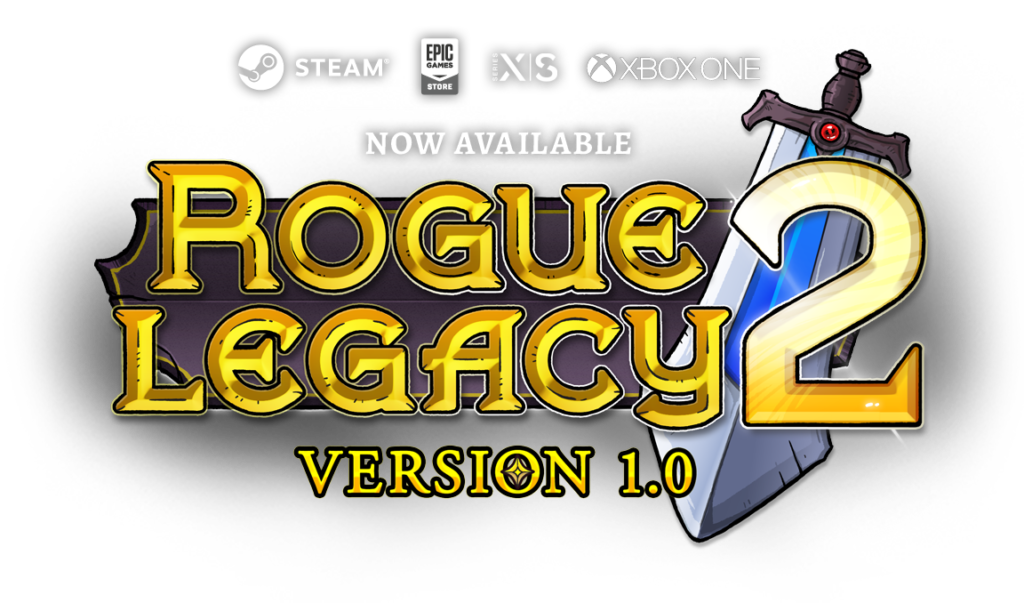
Rogue Legacy 2 (20% off at $19.99): The first Rogue Legacy was a surprisingly long time ago! It was an important exploratory action-adventure game with randomly generated areas. Player death was an intended part of the game: after a character dies, for the next game the player picks one of that character’s offspring, which has different, randomly-generated characteristics. They could also use money found on the last run to upgrade a town, to provide new characters services before they entered the dungeon. Rogue Legacy 2 looks like it continues the tradition.
Slay the Spire (60% off at $9.99): If you’re tired of buzzwords then you might be wary of a game that says it’s both a roguelike and a deck builder, but I think they’re two concepts that fit together pretty solidly-which recent years have proved well enough. This may have been the first of the type. It came out in January 2019 but is still rated Overwhelmingly Positive on Steam, and that’s worth something.
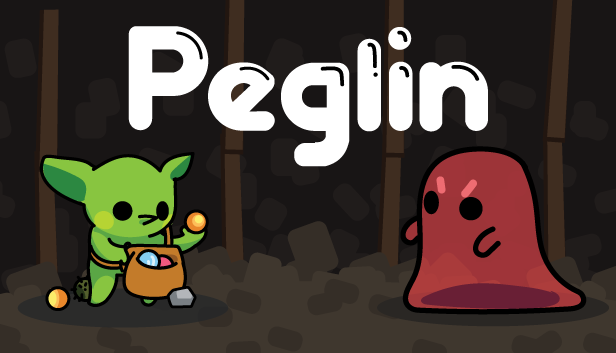
Peglin (10% off at $17.99): It’s one of the newest games in the sale, a combination of roguelite play and Peggle-like pachinko. In the future, all games will be defined by their likes, so we might as well get started now I suppose. The essence of roguelike games, I believe is in adapting to uncertainty, and a mode of pachinko certainly fits that bill.
Currently there’s also Dead Cells (40% off at $14.99), Noita (50% off at $9.99), Enter the Gungeon (60% off at $5.99), and Streets of Rogue (60% off at $7.99). There’s some interesting games in the metroidvania and Souls-like corners too, especially Bloodstained: Ritual of the Night (60% off at $15.99).
So, about those definitions
Roguelikes got their name during the formation of the Usenet group rec.games.roguelike, for being like the classic terminal-based RPG Rogue. At that time it was obvious what the term meant: turn-based tactical combat roleplaying games with random dungeons and randomized items, usually with ASCII graphics by necessity since they were played in a terminal. In the time since then the importance of ASCII graphics has diminished a lot, but the other aspects are pretty good identifying characteristics. Since roguelikes of this form are still popular in some circles, it feels right to let them have it. Although I should note that one of the people who made Rogue has said that they consider a “roguelike” to be a game that can surprise its creator. (I could well be misremembering this, granted.) Since the Steam page mentions it, I figure I should at least link to the Berlin Interpretation’s definition of what it means to be a roguelike.
Roguelites may have gotten their name from me, back in the days @Play was on GameSetWatch. It’s been like 15 years, I don’t remember that well. I used the term to describe games like Spelunky and Binding of Isaac, which wrapped action gameplay around a roguelike core. Another good term for these is action roguelike. The page on Steam states that the ability to bring elements across games is a factor that could make something roguelite, but there are roguelike games with that aspect: NetHack‘s bones levels, for instance, and Shiren the Wanderer‘s between-play progressions.
Souls-like games take after Dark Souls, which has some superficial gameplay similarities with roguelikes (especially the difficulty and emphasis on playing smart) but really shouldn’t be lumped in with them carelessly.
Metroidvanias are exploratory platformers set in a large world. There’s usually some kind of item-based movement advancement that gates access to later areas. The term was probably coined by Jeremy Parish. They get their names from the 2D Metroid games and the exploratory versions of the 2D Castlevania games-which don’t include the original Castlevania, despite what Valve’s page says.

